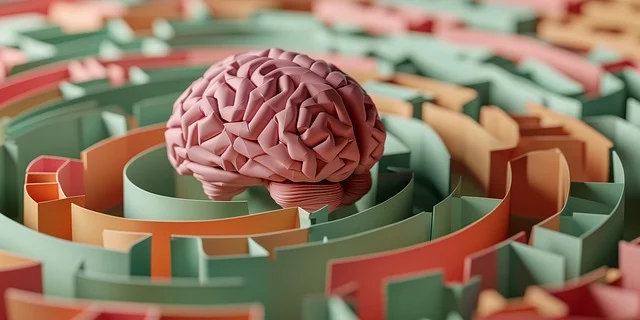Delving Bipolar Disorder its Symptoms, Therapy and Activities

Bipolar disorder, formerly known as manic-depressive illness, is a mental health condition characterized by extreme mood swings that include emotional highs (mania or hypomania) and lows (depression). These mood swings can affect sleep, energy levels, judgment, behavior, and the ability to think clearly. Bipolar disorder can be a lifelong struggle, but with proper treatment, care and support, individuals can manage their symptoms for recovery and lead fulfilling lives.

Page Contents
- 1 Delving Bipolar Disorder, Symptoms and Therapy
- 2 4 Primary Symptoms
- 3 The 5 Primary Therapy
- 4 Here’s a list of 35 plant-based foods that can be beneficial for individuals with bipolar disorder, as they contain nutrients that support mood stability and overall mental health:
- 5 Here are five activities that can be particularly beneficial:
- 6 Conclusion
- 7 Motivational Songs of Don Moen
Delving Bipolar Disorder, Symptoms and Therapy
4 Primary Symptoms
- Mania: During manic episodes, individuals may feel euphoric, full of energy, and overly optimistic. They may engage in risky behaviors such as reckless spending, impulsivity, and substance abuse. Other symptoms of mania include:
- Increased activity, restlessness, or much agitation.
- Racing thoughts and rapid speech.
- Decreased need for sleep.
- Poor judgment and grandiose beliefs about one’s abilities.
- Irritability or agitation when challenged.
- Hypomania: Hypomania is a milder form of mania, but it still involves noticeable changes in mood, behavior, and energy levels. Individuals experiencing hypomania may seem more productive or outgoing than usual, but they may also make poor decisions and have difficulty focusing.
- Depression: Depressive episodes in bipolar disorder are similar to those in major depression. Symptoms may include:
- Persistent sadness or emptiness, and no circle of friends.
- Loss of interest in activities once enjoyed or lifelong passive interest.
- May have changes in appetite or weight.
- Fatigue or loss of energy.
- Feelings of worthlessness or guilt.
- Thoughts of negativity, and worst death or suicide.
- Mixed Episodes: Some individuals experience symptoms of mania and depression simultaneously or in rapid sequence. This can lead to intense emotional instability and increased risk of self-harm.
The 5 Primary Therapy
- Medication: Medications are often the cornerstone of bipolar disorder treatment. Mood stabilizers such as lithium, anticonvulsants, and atypical antipsychotics are commonly prescribed to manage mood swings and prevent relapses. Antidepressants may be prescribed cautiously during depressive episodes, as they can sometimes trigger manic episodes along with plant based foods.
- Psychotherapy: Various forms of therapy, such as cognitive-behavioral therapy (CBT), psychoeducation, and interpersonal therapy, can be beneficial in managing bipolar disorder. Therapy helps individuals understand their illness, develop coping strategies, identify triggers, and improve communication and problem-solving skills.
- Lifestyle Changes: Adopting a healthy lifestyle can complement medical and therapeutic interventions. This includes getting regular exercise, maintaining a balanced diet, practicing good sleep hygiene, avoiding drugs and alcohol for those with addiction or alcoholism, and establishing a consistent daily routine.
- Support Network: Building a strong support network of family, friends, and mental health professionals is crucial for individuals with bipolar disorder. Support groups, dGroup, group praying and peer-led programs provide opportunities to share experiences, receive encouragement, and learn from others facing similar challenges.
- Self-Care: Self-care practices, such as relaxation techniques, mindfulness meditation, earthing or grounding technique with nature and stress management strategies, can help individuals cope with mood fluctuations and reduce the impact of symptoms on daily life.



Here’s a list of 35 plant-based foods that can be beneficial for individuals with bipolar disorder, as they contain nutrients that support mood stability and overall mental health:
- Leafy Greens: Spinach alugbati, kale, Swiss chard, and collard greens are rich in folate, which may help regulate mood.
- Legumes: Beans, lentils, chickpeas, and peas are excellent sources of protein, fiber, and complex carbohydrates, which provide sustained energy and stabilize blood sugar levels.
- Nuts: Walnuts, almonds, and cashews are high in omega-3 fatty acids, which have been associated with improved mood and cognitive function.
- Seeds: Flaxseeds, chia seeds, sesame seeds, pumpkin seeds, squash seeds, sunflower seeds and hemp seeds are rich in omega-3s, fiber, and protein, supporting brain health and mood regulation.
- Whole Grains: Quinoa, brown rice, oats, and barley are complex carbohydrates that provide steady energy and contain nutrients such as magnesium and B vitamins, which support brain function.
- Berries: Blueberries, strawberries, raspberries, cherries, grapes, sineguelas or spanish plum, java plum duhat and blackberries are rich in antioxidants, vitamins, and fiber, which support overall health and may help reduce inflammation in the brain.
- Bananas: High in potassium and vitamin B6, bananas can help regulate mood and support nervous system function.
- Avocado: Rich in healthy fats and B vitamins, avocado can help improve brain function and support mood stability either eaten as fruit dessert or sandwich spread for snacks.
- Sweet Potatoes: A good source of complex carbohydrates, fiber, and vitamins such as vitamin A and vitamin C, sweet potatoes can help regulate blood sugar levels and support overall health.
- Dark Chocolate: Dark chocolate with a high cocoa content contains flavonoids and antioxidants that may improve mood and cognitive function.
- Oranges: High in vitamin C, oranges support immune function and may help reduce stress levels.
- Broccoli: Broccoli is rich in vitamins C and K, as well as folate and fiber, supporting overall health and brain function.
- Bell Peppers: Bell peppers are high in vitamin C and antioxidants, which support immune function and may help reduce inflammation in the body.
- Mushrooms: Certain mushrooms, such as shiitake and maitake mushrooms, contain compounds that may support immune function and improve mood.
- Tomatoes: Tomatoes are rich in vitamins C and K, as well as lycopene, an antioxidant that may help reduce inflammation and support brain health.
- Tofu: Tofu is a good source of protein, calcium, and iron, as well as phytoestrogens that may help regulate hormone levels.
- Tempeh: Tempeh is a fermented soy product that is high in protein, probiotics, and nutrients such as magnesium and B vitamins.
- Edamame: Edamame, or young soybeans, are a good source of protein, fiber, and vitamins, supporting overall health and mood stability.
- Seaweed: Seaweed is rich in iodine, omega-3 fatty acids, and minerals such as magnesium and calcium, supporting thyroid function and overall health.
- Artichokes: Artichokes are high in fiber, vitamins, and minerals, supporting digestive health and overall well-being.
- Asparagus: Asparagus is rich in folate, fiber, and antioxidants, supporting mood stability and overall health.
- Brussels Sprouts: Brussels sprouts are high in fiber, vitamins C and K, and antioxidants, supporting immune function and brain health.
- Cauliflower: Cauliflower is rich in vitamins C and K, as well as fiber and antioxidants, supporting overall health and mood stability.
- Celery: Celery is low in calories and high in fiber, supporting digestive health and overall well-being.
- Cabbage: Cabbage is rich in vitamins C and K, as well as fiber and antioxidants, supporting immune function and brain health.
- Pumpkin: Pumpkin is rich in vitamins A and C, as well as fiber and antioxidants, supporting immune function and mood stability.
- Squash: Squash is rich in vitamins A and C, as well as fiber and antioxidants, supporting immune function and overall health.
- Zucchini: Zucchini is low in calories and high in water content, supporting hydration and overall well-being.
- Cucumber: Cucumber is low in calories and high in water content, supporting hydration and digestive health.
- Garlic: Garlic is rich in antioxidants and sulfur compounds, supporting immune function and overall health.
- Ginger: Ginger is rich in antioxidants and anti-inflammatory compounds, supporting digestive health and overall well-being.
- Turmeric: Turmeric contains curcumin, a compound with anti-inflammatory and antioxidant properties that may support mood stability and overall health.
- Green Tea: Green tea is rich in antioxidants and L-theanine, an amino acid that may promote relaxation and improve mood.
- Chia Pudding: Chia seeds soaked in plant-based milk can make a nutritious and satisfying snack or breakfast option, providing protein, fiber, and omega-3 fatty acids.
- Smoothies: Smoothies made with a combination of fruits, leafy greens, nuts, seeds, and plant-based milk can be a convenient way to incorporate a variety of nutrients into your diet and support overall health and mood stability.
These plant-based foods along with milk, yogurt, fish oil, cod liver oil, algae oil, seaweeds, shrimp, mackerel or salmon, seabass, tuna, sardines and herring fishes can be incorporated into a balanced diet to support mood stability and overall mental health in individuals with bipolar disorder. It’s important to consult with a healthcare professional or registered dietitian for personalized dietary recommendations and to ensure that nutritional needs are met.
Engaging in certain activities can help individuals with bipolar disorder manage their symptoms and improve their overall well-being.



Church worship, prayer meeting and Dgroup is essentially therapeutic for patients.
Here are five activities that can be particularly beneficial:
- Regular Exercise: Group exercise has been shown to have numerous benefits for mental health, including reducing symptoms of depression and anxiety, improving sleep quality, and enhancing mood. Aim for at least 30 minutes of moderate-intensity exercise most days of the week. Activities such as walking, jogging, hiking, swimming, dancing, playing tennis or table tennis and cycling can all be effective forms of exercise for individuals with bipolar disorder.
- Mindfulness Meditation: Mindfulness meditation involves paying attention to the present moment without judgment. Research suggests that mindfulness practices with soothing music can help individuals with bipolar disorder reduce stress, manage difficult emotions, and increase self-awareness. Consider incorporating mindfulness meditation into your daily routine, either through guided meditation sessions or mindfulness-based stress reduction programs.
- Creative Expression: Engaging in creative activities such as art, music, writing, drawing, cooking lessons, carpentry, sculpture or gardening can be therapeutic for individuals with bipolar disorder. Creative expression allows individuals to channel their emotions in a constructive way, express themselves creatively, and experience a sense of accomplishment. Find a creative outlet that resonates with you and make time for it regularly.
- Social Support: Building and maintaining supportive relationships can be crucial for individuals with bipolar disorder. Spend time with friends, family members, or support groups who understand and accept you. Social support can provide encouragement, validation, and practical assistance during difficult times. Consider joining a bipolar support group or participating in communities where you can connect with others who share similar experiences.
- Routine and Structure: Establishing a regular routine and structure in your daily life can help stabilize mood and reduce the risk of mood swings. Aim to maintain normal consistent sleep and wake times, waking up early to get Vitamin D, eat balanced meals at regular intervals, and schedule activities and responsibilities evenly throughout the day. Having a predictable routine can provide a sense of stability and control, which can be particularly beneficial for individuals with bipolar disorder.
It’s important to remember that what works for one person may not work for another, so it’s essential to explore different activities and strategies to find what works best for you. Additionally, it’s important to work closely with church group and mental health professionals to develop a comprehensive care and treatment plan that addresses your individual needs and goals.
Conclusion
Bipolar disorder is a complex mental illness that may require a lifelong management. With a combination of medication, therapy, lifestyle adjustments, constant prayers, care and support– individuals with bipolar disorder can stabilize their mood, reduce the frequency and severity of episodes, and improve their overall quality of life. Early diagnosis and intervention are essential for effective treatment, so it’s important for individuals experiencing symptoms of bipolar disorder to seek help from a qualified mental health professional.
Motivational Songs of Don Moen
Don Moen – Thank You Lord | Live Worship Sessions (youtube.com)







